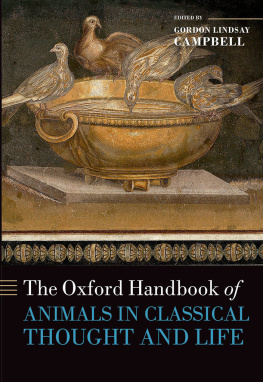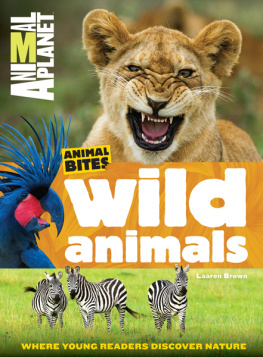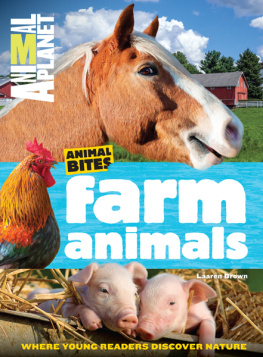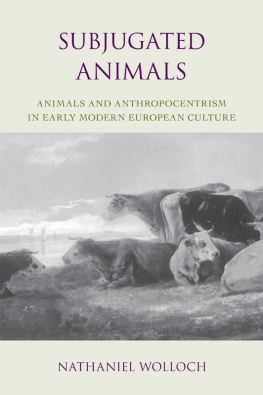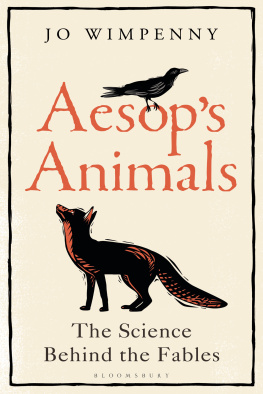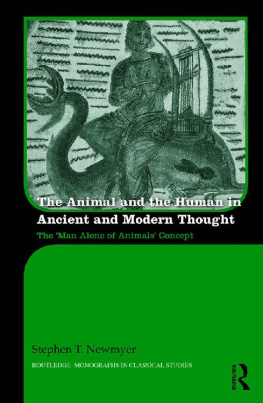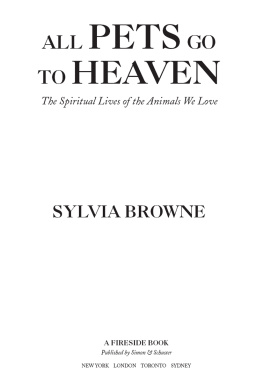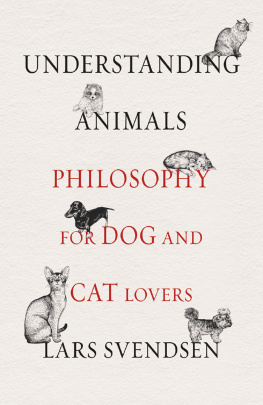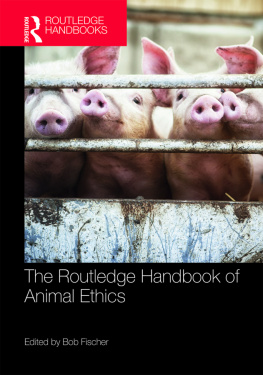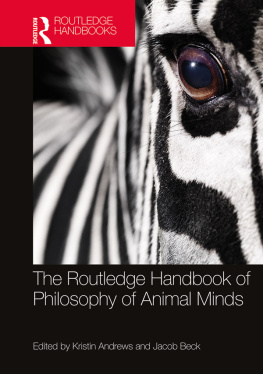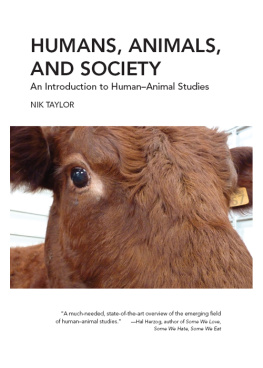THE OXFORD HANDBOOK OF
ANIMALS IN CLASSICAL THOUGHT AND LIFE

Great Clarendon Street, Oxford, OX2 6DP, United Kingdom
Oxford University Press is a department of the University of Oxford.
It furthers the Universitys objective of excellence in research, scholarship, and education by publishing worldwide. Oxford is a registered trade mark of Oxford University Press in the UK and in certain other countries
Oxford University Press 2014
The moral rights of the authors have been asserted
First Edition published in 2014
Impression: 1
All rights reserved. No part of this publication may be reproduced, stored in a retrieval system, or transmitted, in any form or by any means, without the prior permission in writing of Oxford University Press, or as expressly permitted by law, by licence or under terms agreed with the appropriate reprographics rights organization. Enquiries concerning reproduction outside the scope of the above should be sent to the Rights Department, Oxford University Press, at the address above
You must not circulate this work in any other form and you must impose this same condition on any acquirer
Published in the United States of America by Oxford University Press
198 Madison Avenue, New York, NY 10016, United States of America
British Library Cataloguing in Publication Data
Data available
Library of Congress Control Number: 2014941667
ISBN 9780199589425
Links to third party websites are provided by Oxford in good faith and for information only. Oxford disclaims any responsibility for the materials contained in any third party website referenced in this work.
eISBN 9780191035166
ACKNOWLEDGEMENTS
THIS volume is the product of a suggestion made to me by Hilary OShea, Senior Editor for Classics, Ancient History, and Archaeology at Oxford University Press. I am very grateful to her for her advice, to Taryn Das Neves, Annie Rose, and to all of the staff at OUP for their kind help and to Grinne Byrne for her help with editing the chapters. I am also very grateful to all of the authors who have contributed to this volume, and apologize to them for the delay in publication. I would like to single out for praise here Liliane Bodson, author of the chapter on ancient zoological knowledge, for her heroic perseverance in the face of severe ill health. I am extremely grateful to her for the excellent chapter that she produced under very difficult conditions.
CONTENTS
GORDON LINDSAY CAMPBELL
JEREMY B. LEFKOWITZ
ALASTAIR HARDEN
BABETTE PTZ
LAURA HAWTREE
CHIARA THUMIGER
TIMOTHY HOWE
GEOFFREY KRON
TIMOTHY HOWE
MICHAEL MACKINNON
RORY EGAN
GEOFFREY KRON
MICHAEL MACKINNON
THORSTEN FGEN
GORDON LINDSAY CAMPBELL
JEREMY MCINERNEY
MICHAEL MACKINNON
ADRIENNE MAYOR
DANIEL OGDEN
PETER STRUCK
GUNNEL EKROTH
INGVILD SAELID GILHUS
EMMA ASTON
CHIARA THUMIGER
MARY BEAGON
ANGELA MCDONALD
JO-ANN SHELTON
SINCLAIR BELL AND CAROLYN WILLEKES
IDA STENBERG
STEPHEN T. NEWMYER
DANIEL A. DOMBROWSKI
LILIANE BODSON
ADRIENNE MAYOR
VERONIKA GOEBEL AND JORIS PETERS
Emma Aston University of Reading
Mary Beagon University of Manchester
Sinclair Bell Northern Illinois University
Liliane Bodson University of Lige
Gordon Lindsay Campbell National University of Ireland, Maynooth
Daniel A. Dombrowski Seattle University
Rory Egan University of Manitoba
Gunnel Ekroth Uppsala University
Thorsten Fgen Durham University
Ingvild Saelid Gilhus University of Bergen
Veronika Goebel Ludwig-Maximilians-University, Munich
Alastair Harden University of Oxford
Laura Hawtree University of Exeter
Timothy Howe St Olaf College
Geoffrey Kron University of Victoria, British Columbia
Jeremy B. Lefkowitz Swarthmore College
Michael MacKinnon University of Winnipeg
Adrienne Mayor Stanford University
Angela McDonald University of Glasgow
Jeremy McInerney University of Pennsylvania
Stephen T. Newmyer Duquesne University
Daniel Ogden University of Exeter
Ida stenberg University of Gothenburg
Joris Peters Ludwig-Maximilians-University, Munich
Babette Ptz Victoria University of Wellington
Jo-Ann Shelton University of California Santa Barbara
Peter Struck University of Pennsylvania
Chiara Thumiger Humboldt Universitt zu Berlin
Carolyn Willekes University of Calgary
GORDON LINDSAY CAMPBELL
THERE has been quite a surge in recent years in interest in animals in antiquity, and this volume is intended to present a broad survey of attitudes to animals in the classical world by some of the leading contemporary scholars. Each chapter can stand alone as a starting point for investigation into each topic, and each has a useful section on suggested reading for further investigation, but the book may also be read as a whole as a coherent commentary on the whole field of scholarship. The main pre-existing volumes, the Berg Cultural History of Animals () are also very well worth consulting, and may offer in some cases a more theoretical approach than I offer here.
Before I started editing this volume my main interest was in literary and philosophical animals in the ancient world, but, encouraged by the anonymous readers for OUP and my editors, I have broadened out the book to include the realities of animals in the ancient world, and this I hope has provided a much broader and more balanced spread of chapter topics.
Animals are good to think with, and ancient treatments of animals, whether in art, literature, or philosophy, often generate more questions than answers. For example, the question are we animals? can be answered in many ways. Most ancient writers who try to answer this definitively say that we are indeed animals, but animals with special attributes that enabled us to separate ourselves from animalkind and develop the language, culture, and technology that make us human. Other writers may agree that we are animals, but warn that we are in danger of backsliding into a bestial state if we fail to continue to practise the culture that originally made us human. The Arcadians in particular are always in danger of turning into wolves if they will insist on carrying on eating people ().
If the Centaurs display the extremes of inhuman bestiality, there is also a strong tradition in the ancient world of the superiority of animals to humans. Democritus says that we are foolish to imagine that we are superior to animals since they have been our teachers in many arts: the spider in weaving, the swallow in house-building, and the swan in singing (DK68 B154). Similarly Lucretius says that we should not think this world was made for us; if it was made for anyone it was for the animals since they are so much better adapted to it than we are (

